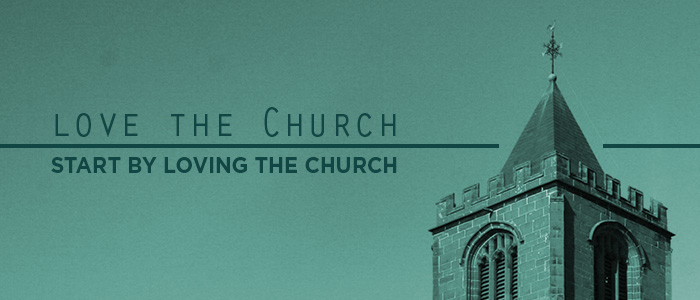I'm loathe to take a camp, step off the fence, call my cards, or slap a label on myself, but all it takes is one quick glance through Sayable, a brief perusal of the publications for which I write, and the local church I call home for others to safely land me in with the neo-reformed. I won't reject the title, but in normal fashion, I will not lay claim to it. However, there's been something rotten in the state of Denmark recently and all fingers are pointing back at, well, I'll say "us" for the sake of this post.
If you have no idea what rotten piecemeal is being bandied about, I have no interest in educating you. Others have done so much more thoroughly than I, with much more anger than I, with many more bones in the game than I. I weigh in today because May was supposed to be my sabbatical month and instead I have been peppered with more questions than ever on why I haven't written on the SGM civil suit.
Here are the main reasons:
1. I am not affiliated in any way with SGM. Though I may be affiliated with those who are affiliated with them, we can play that game all day in every which way. Kevin Bacon anybody? These days everyone knows everyone somehow. It is a small world after all.
2. I am not a lawyer, but I think I am a fairly intelligent person, and even I had a bit of trouble getting my mind around the legal jargon of all the documents. And I've been in my share of courtrooms, with my share of lawyers spouting legal jargon—two can play that game. All I'm saying is, someone wants to win and so it's hard to trust a system where winning is the goal. Last shall be first and all that.
3. I'm one of those fools who trusts the men who keep watch over my soul. Maybe that play isn't for everybody, but I figure the Bible spent a lot of time talking about it, so nuff said.
. . . . . . . . . . . . . . . . . . . . .
Just because I didn't say anything about it, though, doesn't mean I didn't feel complicit in the alleged ongoing silence by "us." I was a bit confused as to why men and women I respected within the Church at large weren't weighing in on the suit at all, save from a post by Tim Challies. It is good to be slow to speak, yes, but not speak at all? It didn't seem right. I knew I didn't have anything to add to the civil suit conversation, but surely something could be said to acknowledge the situation period?
(Adding my voice to the cacophony of the Christian blogosphere wouldn't assuage those out for an admission of guilt, though, if you're wondering why I didn't say anything. I'm under no illusions—I might be affiliated with those affiliated with SGM, but I'm no Kevin Bacon, if you get my drift.)
. . . . . . . . . . . . . . . . . . . . .
In the light of more recent occurrences, though, and now that some of "us" have issued a public statement, I thought a few things might be said. Take them for what they're worth to you. Remember comments aren't open on Sayable ever so I'm not shutting you down and there's no need to respond. They're just my simple thoughts for those who might need them.
If you are a pastor:
Please protect your sheep. I meant what I said above about trusting those who keep watch over my soul. I mean that because the Bible says it and I trust the words of God. However, you, by nature of your position and your God-given authority, help illuminate those words for your sheep. You can use or abuse your authority and position, and you can, unknowingly, be the voice of the accuser to people—even in your silence. Always protect your sheep. If one of your talented, seemingly godly, charismatic sheep turns out to be a wolf, go after him. If one of your sheep leaves the fold, go find her. Pastor your people, don't just preach at them.
If you were abused:
This case feels like the nail in the coffin, trust me, I know. Even if it wasn't the same as your experience, you can easily relive your experience every time someone dismisses the concerns of the victims, every time someone seems complicit with their silence. Your heart means well here. The grace of God for you takes a horrific experience and gives you the tools to minister to these issues in a way those higher-up might never be able to do. That is not your blight or your stain, that is the precious work of grace to take the broken and make beautiful. Now is your time to speak in and with grace.
If you were an abuser:
You did wrong and you know this. You ought to make recompense for what is considered a crime in the eyes of God and the judicial system. But this does not mean forgiveness is withheld from you, or should be withheld until you "pay for what you did." Forgiveness doesn't work that way. I pray you know the fullness of the gospel covers your crimes, but does not blot them from history. Repent, accept the judicial punishment, and if you are His Child, look forward to a lifetime of His grace and an eternity in His presence.
If you want to leave the church because of this:
Part of me wants to say, please do, and trust me, there's no snark in that statement. I'm fully convinced that no matter how far you run, you cannot outrun the wild, ferocious, loving heart of our God. If leaving the Church for a while helps you clear yourself of the clutter of its underbelly, please do. You have the freedom to leave abusive situations, Christ sets us free to do that, and you should. But I will also say this, as a child who has seen her fair share of the underbelly, if you're His? You're grafted in. You're knit so tightly into His body and flesh, his scars and blood-bought redemption that you can't leave the Church because you are part of it. And it's beautiful. Really beautiful when you see it like that.
If you are neo-reformed (or whatever it is called these days), but embarrassed by the silence or complicit responses:
Can I implore you to press in close to your leaders, your elders, your editors, and your pastors. Sometimes they know things about a situation that you don't know, isn't public knowledge, isn't on some legal document, and isn't widely known. Sometimes they're withholding comment because it could actually make it worse for the most helpless of the situation. You don't know. There's a lot of speculation, regardless of who you are and who you know and who you know who knows someone else. You aren't Kevin Bacon, you just saw one of his movies once or twice. Reserve judgement.
If you know someone who knows someone (who was abused, who went to an SGM church, or anyone at all):
One of the things I love about the Bible is there are all these portions where it's just one man or one woman and God (or the enemy). There are no eye-witnesses, it's just Moses and the burning bush, Daniel and the lions, David and the bears, Jesus and the enemy. We get this birds-eye view into the situation, but really, when it happened it was just them there.
So we have perceptions of how things looked or played out, but I'll bet you could poll any thirty of us and we'd all have a different setting in mind for Moses and his burning bush. There would be similarities, of course, but it would be different. This is how it is to hear any story second hand. We can know that some things are true, but some things are simply perceptions. Because of this, it is almost always better to reserve your own words about another person's experience. There may be truth to it (and in this case specifically, it seems like there is definitely much truth to it), but the retelling of it multiple times will never end well. Mourn with those who mourn, bring it to the authorities if need be, but keep silent about the specific matter unless you know you speak the canonized truth.
If you are a mere onlooker:
If you're just a casual reader, a blog reader, a curious atheist, a questioning agnostic, I am sorry. This entire situation, from twenty years ago until today is unfortunate and shameful. This is not becoming to the Church and I deeply regret it happened. However, let me say this, I am firmly convinced the Church tries to keep its wedding dress too squeaky clean, and this case is a perfect example of it. The reality is we're blemished and broken, spotted and wrinkled, and Christ is the only way we're getting presented cleansed. He's it. It's not through a denomination, a pastor, a friend, a court system, or a blog post that the resolution of all things comes, it's Him. Him alone. Be encouraged, there's room at the table and we don't mind if you're messed up. Really. We're messed up too.
. . . . . . . . . . . . . . . . . . . . .
That's all. I know this is long, and I'm breaking sabbath to share it, but I couldn't sleep and I love to sleep.
Go in peace, brothers and sisters, pastors and sheep, abused and abusers, doubters and finders, He is faithful to complete His work. He seals it with His spirit.



